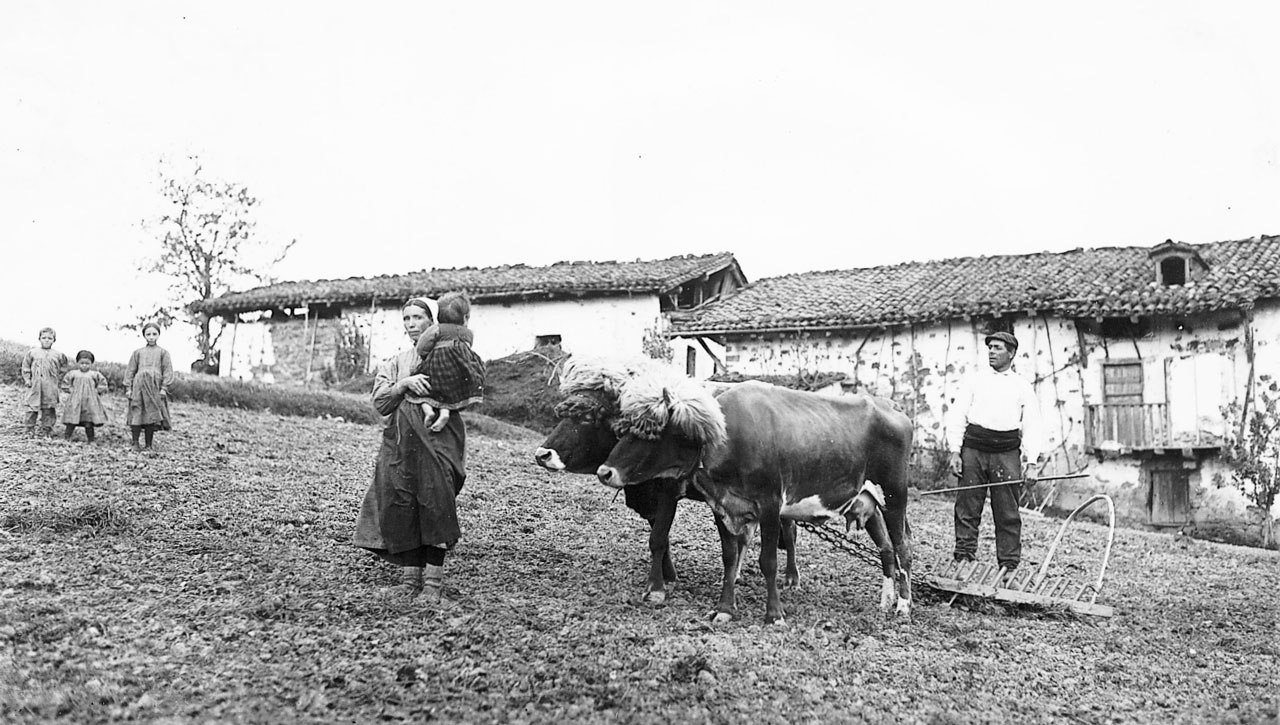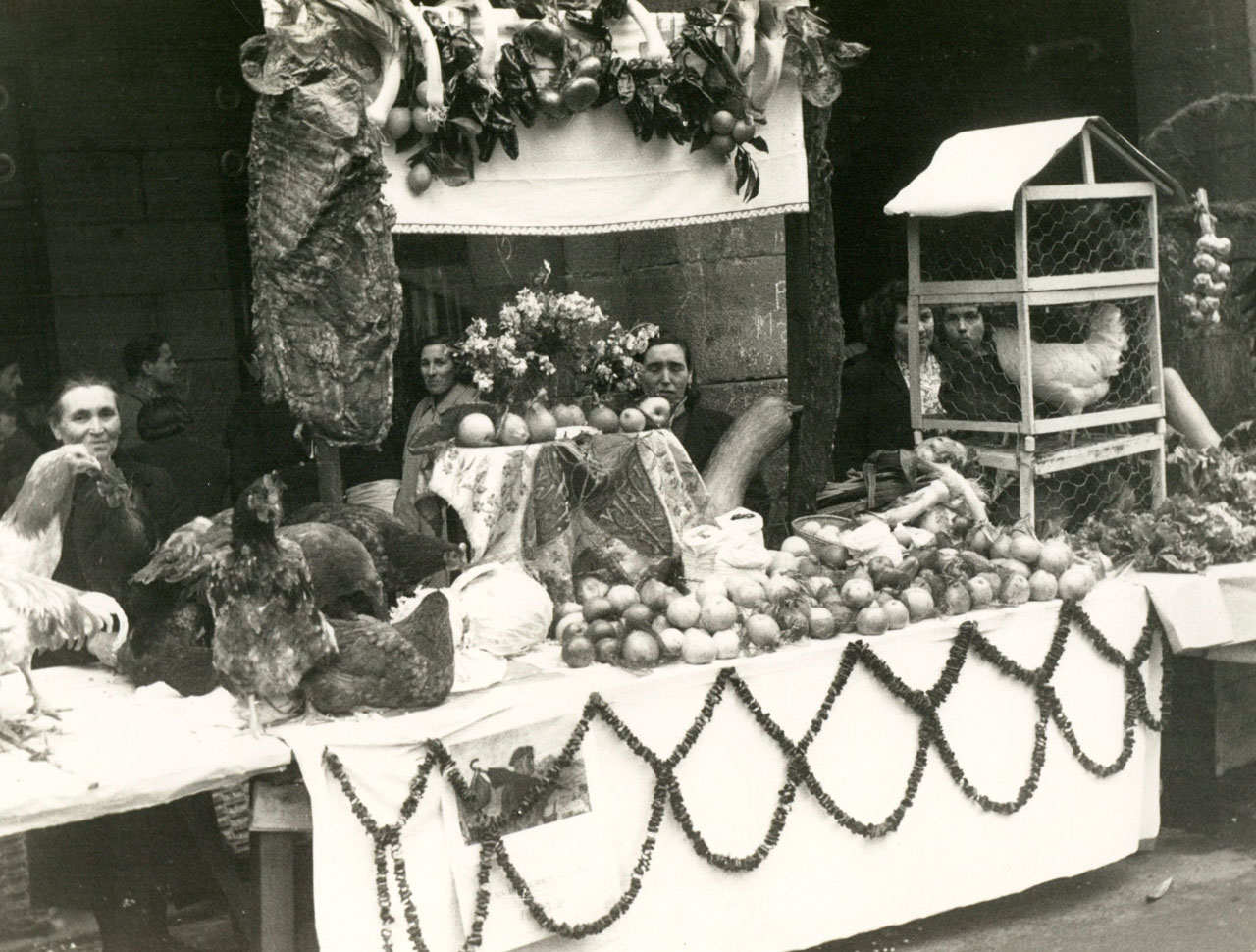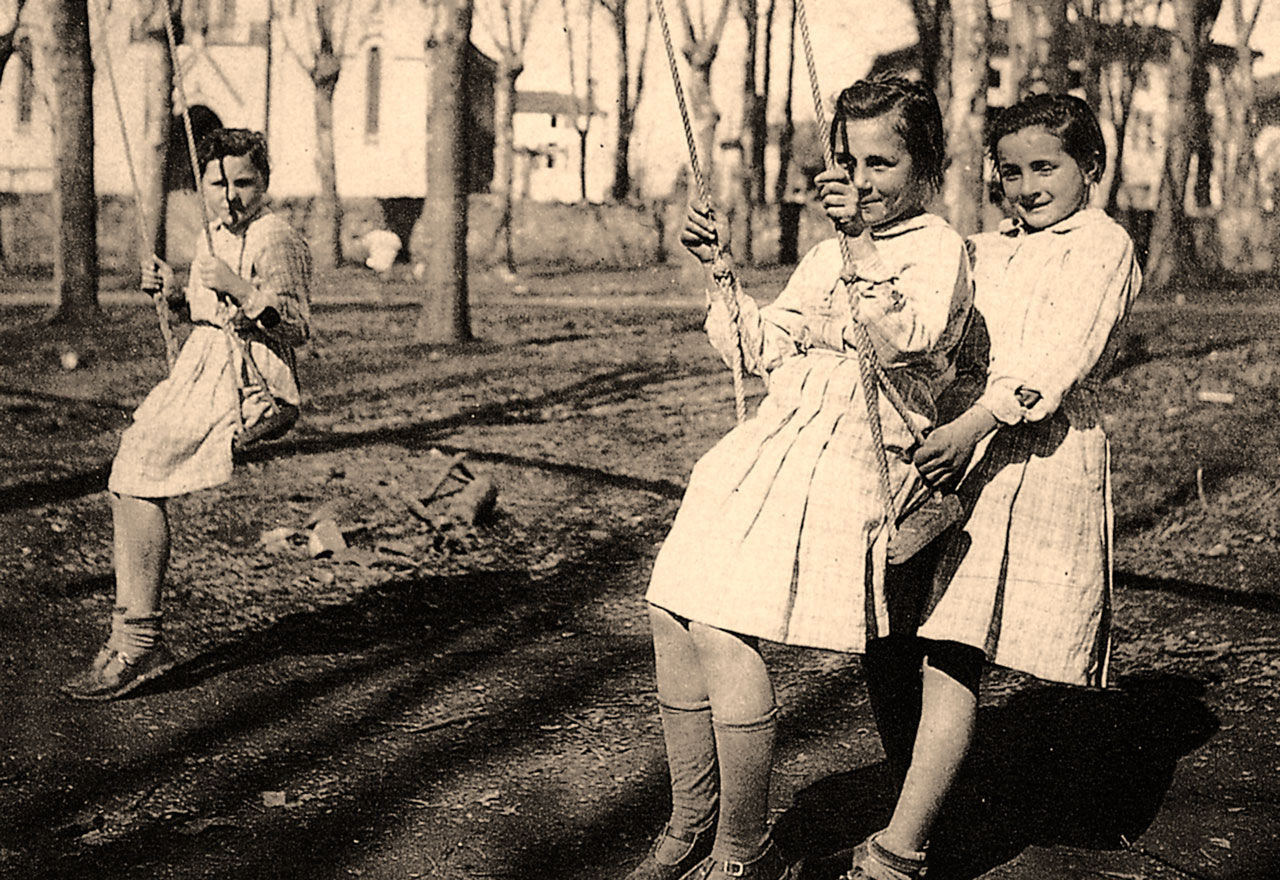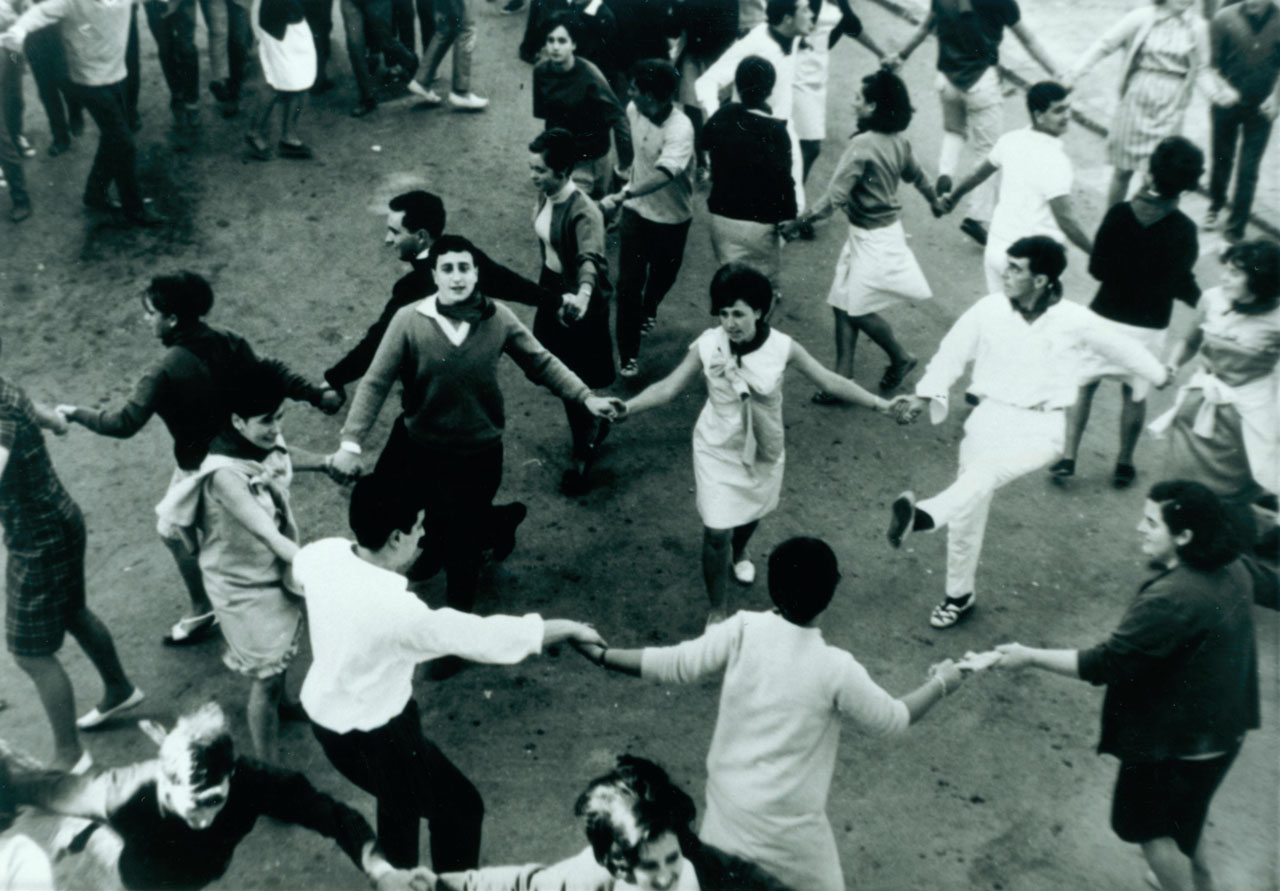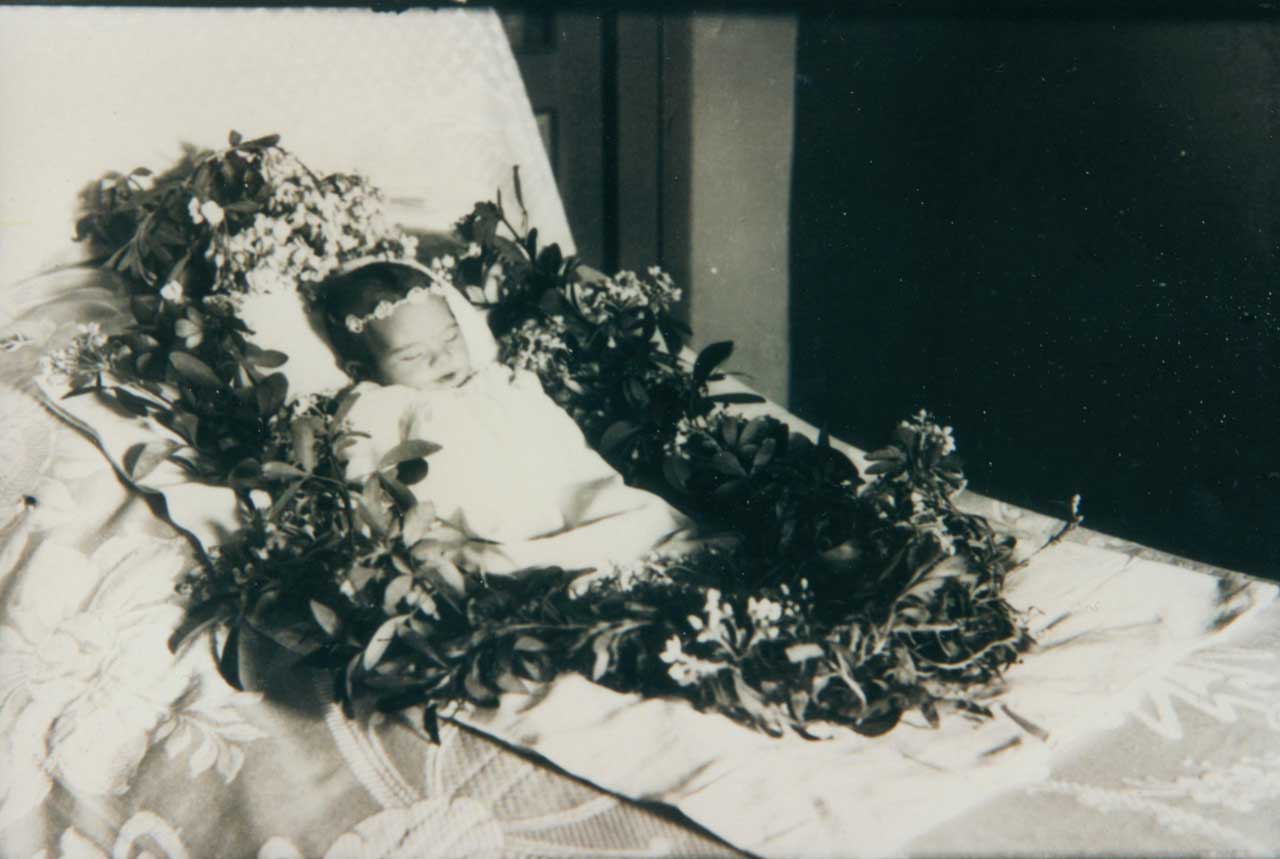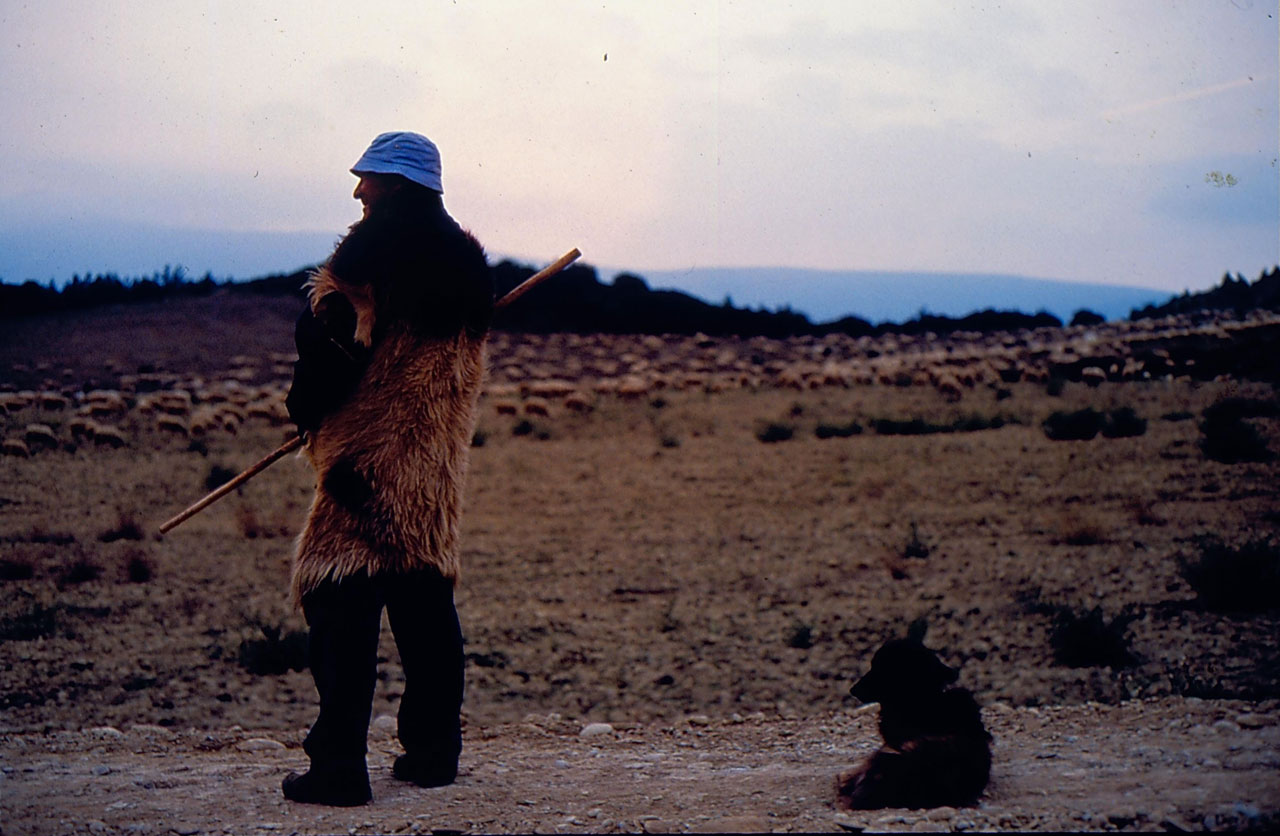Main Page/en
De Atlas Etnográfico de Vasconia
Revisión del 15:01 10 feb 2020 de Admin (discusión | contribuciones)
Mutual cooperation. Zeanuri (B), c. 1915. Source: Labayru Fundazioa Photograhic Archive: Felipe Manterola Collection.
House and Family in the Basque Country


House and Family in the Basque Country
The rural farmstead was an institution made up of the building, its land, its dwellings and by tradition, in other words, by that web of relations that closely links the current generation with past ones.
Family Diet in the Basque Country


Family Diet in the Basque Country
Food was grown on the family small holding or bought from local markets, which, in turn, were supplied with food grown locally. A few products, nearly always non-staples, complemented local or household self-supply.
Children’s Games in the Basque Country


Children’s Games in the Basque Country
Sirrin-sarran, domini pan, zure semea errotan, errota txiki, errota handi, eragin deutso, pin-pan.Children’s chant
Traditional Medicine in the Basque Country


Traditional Medicine in the Basque Country
Ona da ardaoa, kentzeko burutik beherakoa. Treat a cold with a hot toddy.
Rites from Birth to Marriage in the Basque Country


Rites from Birth to Marriage in the Basque Country
Gazteak, badakizue zelan dantzan egin: burua gora-gora ta kaderai eragin. Folk verse
Funeral Rites in the Basque Country


Funeral Rites in the Basque Country
Jaiotzetik heriotza zor. When you begin to live, you being to die.
Herder and dog. Droveway of the Roncalese (N), 1996. Source: Iñaki San Miguel, Etniker Euskalerria Groups.
Livestock Farming and Shepherding in the Basque Country


Livestock Farming and Shepherding in the Basque Country
The introduction of sheepdogs meant they replaced the zagales, young children who had been in charge of herding the flock up to then.
Agriculture in the Basque Country


Agriculture in the Basque Country
Flax fields and market gardens were the areas of the farm that required the greatest care, the pride of the farmer’s property and a cornerstone of the family’s wealth.
